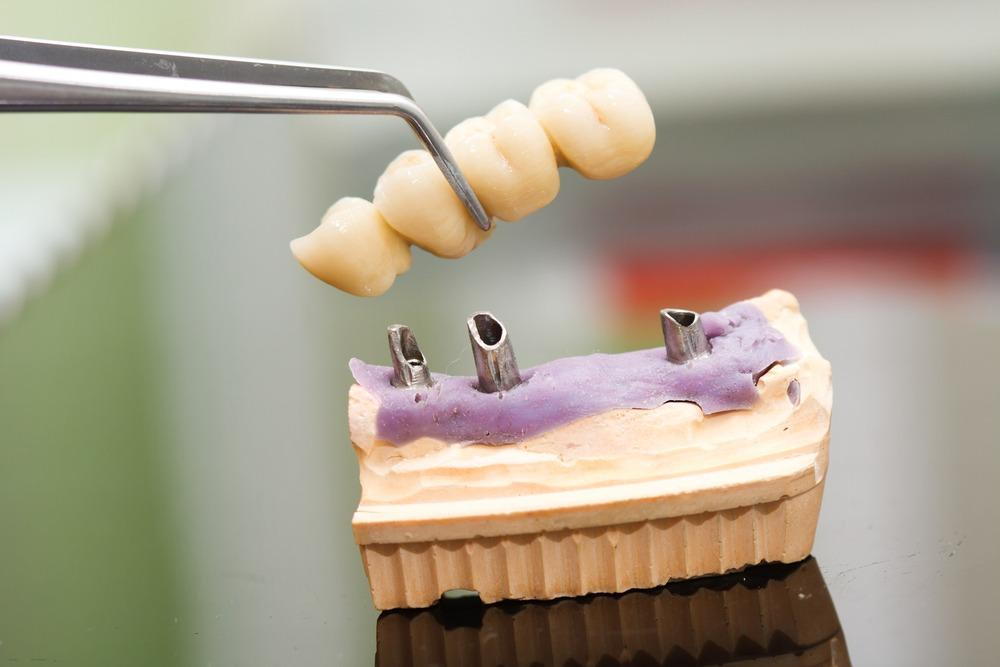7 Most Commonly Asked Questions About Dental Bridges
7 Most Commonly Asked Questions About Dental Bridges
posted: May 02, 2022.

Dental bridges are a common dental treatment that can improve the appearance and function of your smile. If you’re considering getting a bridge, you may have some questions about the process and what to expect. We’ve answered seven of the most commonly asked questions about dental bridges below. Let us know if you have any additional questions after reading this post!
What is the disadvantage of a dental bridge?
The main disadvantage of dental bridges is that they require some level of invasive and surgical treatment to place. This can be uncomfortable and cause some short-term side effects, such as pain, swelling, or infection. Additionally, dental bridges are a permanent solution, so it is important to consider all potential long-term implications before opting for this type of treatment. However, for many people who are missing one or more teeth due to injury, decay, or other issues, dental bridges can be an effective and affordable way to restore healthy function to their smile.
Why is a dental bridge not recommended?
There are a few reasons why dental bridges may not be recommended. First, as mentioned above, they require some level of surgical treatment which can be uncomfortable for some people. Additionally, because they are a permanent solution, they cannot be easily removed if you decide you do not like them or if they cause any problems. Finally, dental bridges can be quite expensive, particularly if you need multiple dental bridges to replace several missing teeth. However, for some people who are missing a significant number of teeth and do not want the inconvenience or expense of more invasive options like dental implants or dentures, dental bridges may be a good option.
How long does it take for a dental bridge to feel normal?
The process of getting used to a dental bridge can vary significantly from person to person, but generally, it will take some time for your mouth and gums to adapt to the new restoration. This may involve some degree of pain, swelling, or discomfort as well as minor changes in your speech or eating habits. However, most people find that their dental bridge eventually feels quite natural and they are able to adjust to it with little difficulty. In some cases, it may take several weeks or even months for a dental bridge to feel completely normal.
How many teeth can you have on a bridge?
Although there is no set limit to the number of teeth that can be replaced with a dental bridge, in general, it is recommended to replace between 3 and 5 missing teeth at a time. This helps to ensure that the restoration feels comfortable and natural, while also minimizing the amount of invasive treatment needed. Depending on your individual circumstances, you may be able to replace more or fewer teeth with a dental bridge. Your dentist will be able to advise you on whether dental bridges are a good option for you.
Is it normal for a dental bridge to move?
Yes, it is normal for a dental bridge to move slightly over time. This is because the teeth and gums around the restoration will adapt to its presence as well as shifting teeth can sometimes force the bridge out of place. However, with proper care and regular dental checkups, you can help to keep your dental bridge in good condition and minimize the amount of movement. If your dental bridge does become loose, it is important to see your Wentzville dentist as soon as possible so that they can make any necessary adjustments or repairs.
How do I clean my dental bridge?
It is important to brush and floss around your dental bridge regularly to keep your teeth and gums healthy. You may find that a special floss threader or interdental brush can help to reach all of the areas around your dental bridge. Additionally, it is important to see your dentist for regular checkups and cleanings so that they can remove any plaque or tartar buildup that could cause problems.
What are the risks of dental bridges?
As with any type of dental treatment, there are some risks associated with dental bridges. These can include pain, discomfort, and infection at the site of the bridge. Additionally, if the bridge is not placed properly or if it does not fit well, it can cause damage to the surrounding teeth. However, these risks are typically quite low and can be minimized with proper care and regular dental checkups.
If you have any other questions about dental bridges or would like to schedule a consultation, please don’t hesitate to contact our office at 636-251-4665. We are always happy to help our patients achieve and maintain optimal oral health.
